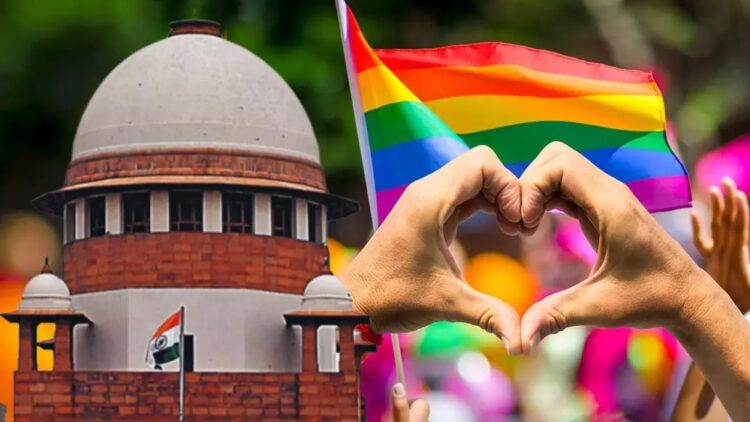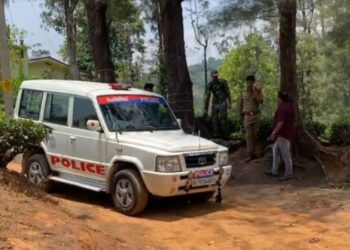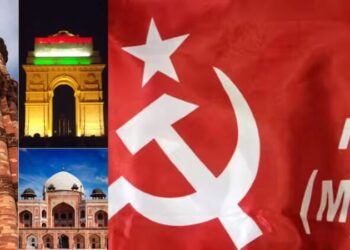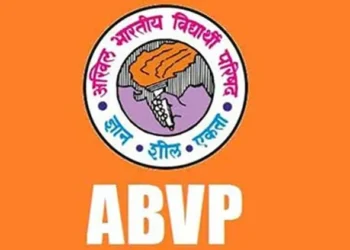New Delhi: A Supreme Court bench announced the rejection of the petition seeking the legalization of same-sex marriage in India.
The five-judge constitution bench, led by Chief Justice D Y Chandrachud and comprising Justices Sanjay Kishan Kaul, S Ravindra Bhat, Hima Kohli, and P S Narasimha, delivered their judgment following a 10-day marathon hearing, reserving their verdict on May 11. While Chief Justice Chandrachud and Justice Kaul supported the pleas for the legalization of same-sex marriage, the other three judges rejected the appeals.
The Supreme Court bench emphasised that the matter should be decided by Parliament, asserting that it was not within the court’s jurisdiction to legislate on this issue. The court suggested that the Special Marriage Act should be revisited to accommodate same-sex marriages. At the same time, the bench underscored that the failure to do so would result in discrimination against queer couples.
The Chief Justice underscored the universality of queerness, highlighting that it transcends caste, class, and socio-economic status, stating, “Queerness can be regardless of one’s caste, class, or socio-economic status.” He challenged the notion that homosexuality is confined to urban areas or specific social strata, asserting, “Homosexuality or queerness is neither an urban concept nor restricted to the upper classes of society.”
Furthermore, Chief Justice Chandrachud emphasised the evolving nature of marriage, explaining, “It is incorrect to state that marriage is a static and unchanging institution. Reforms in marriage have been brought about by acts of the legislature.” He reaffirmed the court’s responsibility to protect the fundamental rights of citizens, asserting that the doctrine of separation of powers does not hinder the court’s ability to issue directions for the protection of these rights.
The Indian government’s stance on the matter was made clear during the arguments, with the Centre expressing reservations about providing a constitutional declaration in favour of legalising same-sex marriages. The Centre argued that it could not foresee or deal with the potential consequences of such a declaration, and it pointed out that several states had opposed the idea of legal endorsement for same-sex marriage.
The Supreme Court had started hearing arguments on this issue on April 18, with the bench underscoring that it would not delve into personal laws governing marriages while deciding on judicial validation for same-sex marriages. The court emphasised that the definition of marriage should not be rigidly based on gender.
In light of the significance of this verdict, various petitioners had urged the court to use its authority to encourage societal acceptance of same-sex unions, ensuring that LGBTQIA++ individuals lead dignified lives like their heterosexual counterparts.
The term “LGBTQIA++” encompasses lesbian, gay, bisexual, transgender, queer, questioning, intersex, pansexual, two-spirit, asexual, and ally individuals, illustrating the diversity within the LGBTQ+ community.
In the historic legal battle for the recognition of same-sex marriage in India, the petitioners presented a compelling array of arguments, firmly advocating for equal rights and acceptance for the LGBTQ+ community. Here is a comprehensive summary of their key points:
- Acknowledgement of Same-Sex Relationships: The petitioners stressed the importance of official recognition of same-sex relationships as a means to foster equality and fairness.
- Right to Love: Advocates argued that the intrinsic right to love should be extended to all individuals, regardless of their sexual orientation.
- Constitutional Rights: They contended that the prohibition of same-sex marriage infringes upon the constitutional rights of the LGBTQ+ community.
- Respecting Diverse Sexual Orientations: Emphasizing the need for societal and governmental recognition of diverse sexual orientations, petitioners sought validation and acceptance.
- Human Rights Violation: It was asserted that the denial of same-sex marriage constitutes a violation of human rights, affecting on the fundamental principles of equality and freedom.
- Freedom of Choice: Petitioners argued that the institution of marriage should be a matter of personal choice, free from societal or legal constraints.
- Legal Protections: They underlined the necessity for statutory protections for same-sex couples, similar to those enjoyed by their heterosexual counterparts.
- Equality before the Law: Lawyers contended that same-sex couples should have equal rights under the law, as guaranteed by the Constitution.
- Social Stigma and Discrimination: The petitioners highlighted the prevalent social stigma and discrimination faced by the LGBTQ+ community and how the legalisation of same-sex marriage could serve as a potent antidote.
- Mental Health Concerns: Concerns about the mental health issues arising from a lack of acceptance and ongoing discrimination were raised, underscoring the urgency of change.
- Adoption Rights: Advocates pleaded for the rights of same-sex couples to adopt and establish families, arguing that their sexual orientation should not be a barrier.
- Denial of Economic Rights: The petitioners illuminated how the current legal framework denies economic benefits to same-sex couples and their families.
- Strict Scrutiny of Laws: They insisted that the court should apply a strict scrutiny standard to evaluate laws that discriminate against LGBTQ+ individuals.
- Global Trends: Petitioners drew attention to the evolving global trends and increasing acceptance of same-sex marriage, highlighting India’s opportunity to be a part of this transformation.
- Privacy Rights: Stressing the importance of privacy rights, they contended that these rights encompass one’s sexual orientation, safeguarding individuals from unnecessary intrusion.
- Same-Sex Marriage versus Institution of Marriage: Arguments were made to counter the claim that legalizing same-sex marriage would weaken the institution of marriage, maintaining that it, in fact, strengthens the commitment to love and partnership.
- Social Validity: The petitioners underscored the significance of social validity, which can be achieved through legal recognition by challenging societal norms and prejudices.
- Invalidating Stereotypes: They emphasized the need to break down negative stereotypes about the LGBTQ+ community, advocating for a more inclusive and accepting society.
- Life of Dignity: Echoing the landmark judgement in the Navtej Johar case, the petitioners repeated their rightful claim to a life of dignity, free from discrimination and prejudice.
- Against Section 377: The petitioners explicitly called for a reevaluation of Section 377 of the Indian Penal Code, contending that it stands in contradiction to the fundamental rights included in the Constitution. This section, previously criminalizing homosexuality, was decriminalized by the Supreme Court in 2018.













Comments